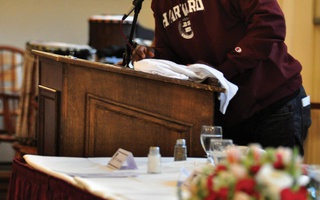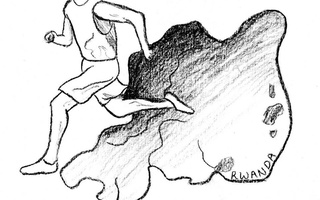Haiti has, since the January 2010 earthquake, been promised substantial foreign aid, namely in the form of money from donor countries such as the United States and Canada. However, the events that have transpired over the last few days demand a more lasting and different type of foreign aid- not financial but moral.
On Sunday afternoon, a relic of Haiti’s darkest days exposed the scars of a country already in a dire political situation. Jean-Claude Duvalier, also known by the moniker “Baby Doc,” arrived in Haiti from Paris on a diplomatic passport. As a man whose dictatorship was responsible for brutal and atrocious crimes against humanity, his arrival was met with a flood of questions, most of which are still unanswered.
The simplest of them all, is perhaps, “Why is he here?” The man behind some of the worst human rights abuses known by the Haitian people justified his presence like this: “I want to assess the situation in Haiti…I want to help rebuild my country.” Maybe Jean-Claude Duvalier would like to regain his old seat in power; maybe he wants to be part of the dialogue in Haiti’s reconstruction. Whatever it may be, to not hold him accountable for his overwhelmingly reprehensible offenses would be an affront to justice and moral consciousness. Even more absurd is the lack of any rationale by the international community to refrain from indicting him on charges that warrant the weighty scrutiny of a tribunal such as the International Court of Justice (ICC).
The Nuremberg Trials, known by many as proceedings that prosecuted members of the leadership in Nazi Germany, was the impetus for the creation of a permanent international court to deal with the atrocities of the type committed against Jews during the Holocaust and needless to say, a trial of a similar nature needs to be held in Jean-Claude Duvalier's case. The ICC, an oft-criticized institution, should seize this opportunity to prove its efficacy by not reneging its purpose.
The Duvaliers (Francois “Papa Doc” Duvalier and son) and their cronies, it has been estimated, are responsible for close to 30,000 Haitian deaths during their 29 years in power. Equally shocking is the Haitian government's decision to merely charge Jean-Claude Duvalier with corruption, theft, and misappropriation of funds. The international community once overlooked the Duvaliers' crimes and it seems as if it will once again turn a blind eye.
However, it would be a grave mistake on the part of the international community to not enforce justice. There is no moral alternative. The ICC should apprehend and appropriately charge “Baby Doc” for his role in the deaths of thousands of Haitians. As defined by the Rome Statute of the ICC Explanatory Memorandum, crimes against humanity are “particularly odious offenses in that they constitute a serious attack on human dignity…part of a government policy or of a wide practice of atrocities tolerated or condoned by a government or de facto authority.” If this definition does not accurately describe the Duvalier regimes, it’s a shrouded mystery as to what does. Prosecuting Jean-Claude Duvalier is exactly the foreign aid that Haiti needs from the international community at this time.
Aid of this type, at this very moment, will snatch Haiti out of this most unnecessary distraction when it should be focusing most of its effort, if not all, on rebuilding its collapsed infrastructure and stabilizing its crippled political system. Moreover, it will begin the healing of wounded Haitians, exhausted from unending abuses and corruption, which are part and parcel of a string of ineffective governments.
It has been a quarter century since Jean-Claude Duvalier left Haiti. Exiled to France and free from custody, “Baby Doc” has not been held accountable for any of the crimes he has committed. The price to pay for nearly three decades of senseless killings, rapes, and tortures is beyond imagination but justice must prevail.
The world's lien on Jean-Claude Duvalier’s future starts with a trial under the auspices of the ICC. As to why Jean-Claude Duvalier is in Haiti, this question can be left to speculation, but tough questions relating to his brutal regime as dictator of Haiti must have their rightful place in an international court of law.
Patrick Jean Baptiste ’11, a Crimson editorial editor, is a biochemical sciences concentrator in Cabot House.
Read more in Opinion
Loughner’s Empty InvestigationRecommended Articles
-
MOVIEGOERLast minute entry for the Academy Award is Bette Davis' newest acting miracle "Now, Voyager." One does not even have
-
 Wyclef Jean is Coming to Harvard
Wyclef Jean is Coming to Harvard -
 Wyclef Jean Sets Tone at Cultural Event
Wyclef Jean Sets Tone at Cultural Event -
 Really, Wyclef?
Really, Wyclef? -
Women's Tennis Prepares for TournamentIt is a weekend of opportunity for the Harvard women’s tennis team, as it travels to Flushing, N.Y., to compete ...
-
 Identity and Loss Run Through Rwandan Novel
Identity and Loss Run Through Rwandan Novel













